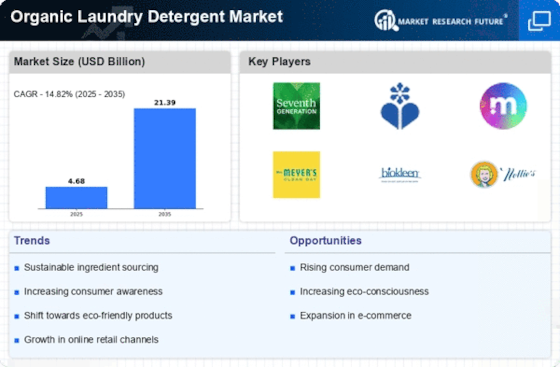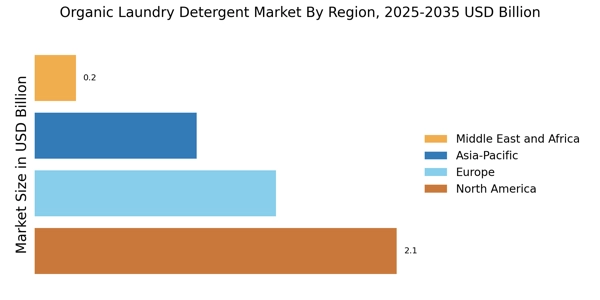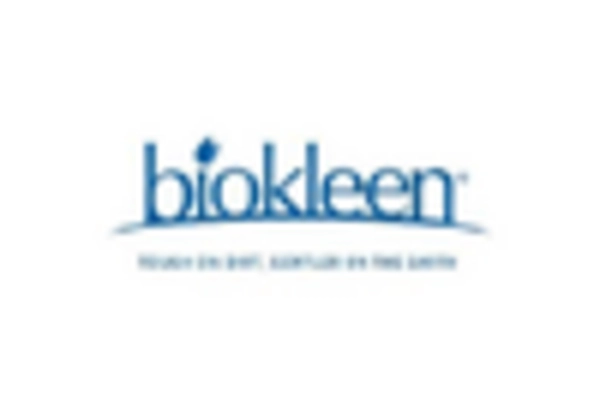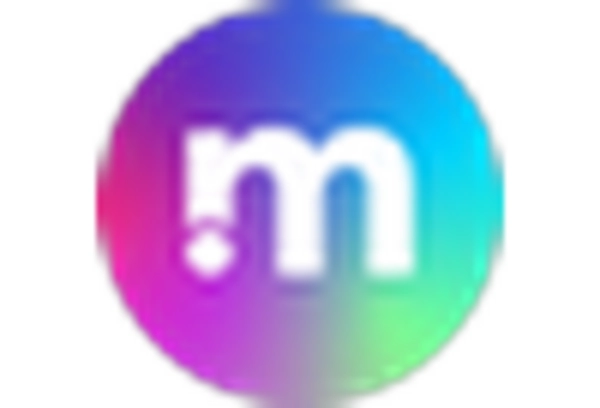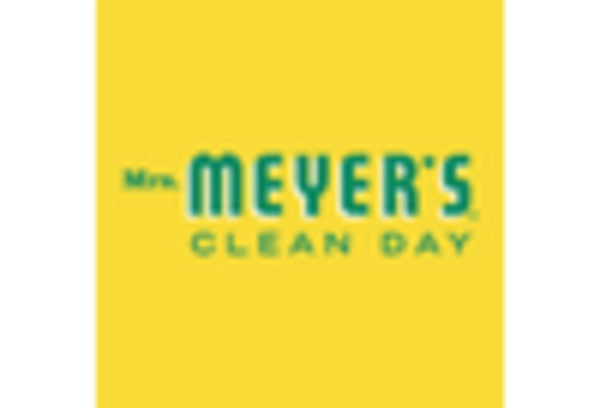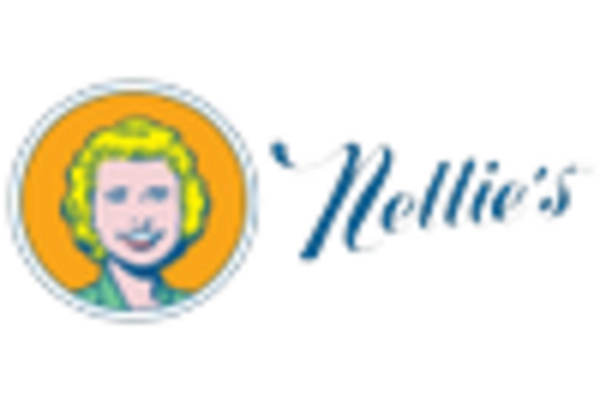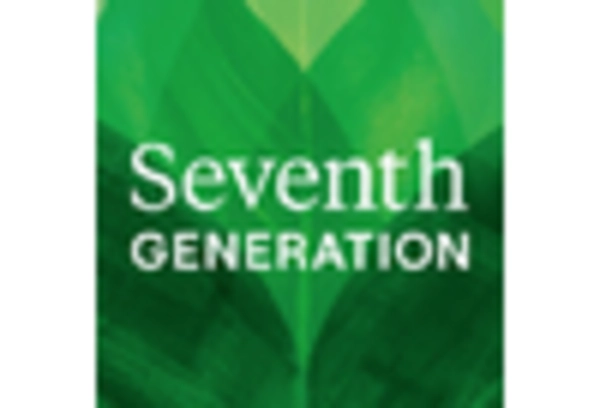North America : Sustainable Innovation Leader
North America is the largest market for organic laundry detergents, holding approximately 45% of the global market share. The region's growth is driven by increasing consumer awareness regarding environmental sustainability and health concerns associated with traditional detergents. Regulatory support, such as the EPA's Safer Choice program, encourages the use of eco-friendly products, further boosting demand.
The United States leads the market, with key players like Seventh Generation, Method Products, and Mrs. Meyer's Clean Day dominating the landscape. Canada also contributes significantly, with brands like Nellie's and Attitude gaining traction. The competitive environment is characterized by innovation in product formulations and packaging, catering to the growing demand for sustainable and effective cleaning solutions.
Europe : Eco-Conscious Consumer Base
Europe is the second-largest market for organic laundry detergents, accounting for about 30% of the global market share. The region's growth is fueled by stringent regulations on chemical usage and a strong consumer preference for eco-friendly products. Initiatives like the EU Ecolabel promote sustainable practices, encouraging manufacturers to adopt greener formulations and packaging solutions.
Leading countries include Germany, France, and the UK, where brands like Ecover and Attitude are well-established. The competitive landscape is marked by a mix of local and international players, with a focus on transparency in ingredient sourcing and production processes. The presence of strong regulatory frameworks further enhances market growth, pushing companies to innovate and meet consumer expectations for sustainability.
Asia-Pacific : Emerging Market Potential
Asia-Pacific is witnessing rapid growth in the organic laundry detergent market, holding approximately 20% of the global market share. The region's expansion is driven by rising disposable incomes, urbanization, and increasing awareness of health and environmental issues. Countries like China and India are experiencing a surge in demand for organic products, supported by government initiatives promoting sustainable practices.
China is the largest market in the region, with a growing number of local brands entering the organic segment. India follows closely, with increasing consumer interest in eco-friendly products. The competitive landscape is evolving, with both established players and new entrants focusing on innovative formulations and marketing strategies to capture the growing consumer base seeking sustainable options.
Middle East and Africa : Untapped Market Opportunities
The Middle East and Africa region is still developing in the organic laundry detergent market, holding about 5% of the global market share. However, there is significant potential for growth driven by increasing urbanization, rising health consciousness, and a shift towards sustainable living. Governments are beginning to recognize the importance of eco-friendly products, which may lead to supportive regulations in the future.
Countries like South Africa and the UAE are at the forefront of this market, with a growing number of consumers seeking organic alternatives. The competitive landscape is relatively fragmented, with both local and international brands vying for market share. As awareness of environmental issues increases, the demand for organic laundry detergents is expected to rise, presenting opportunities for new entrants and existing players to innovate and expand their offerings.


